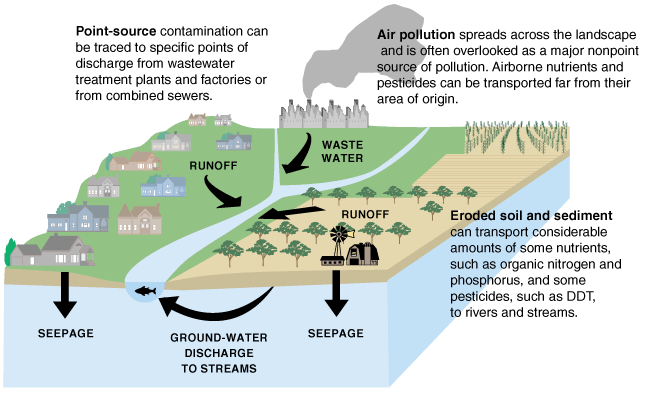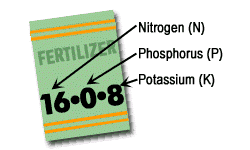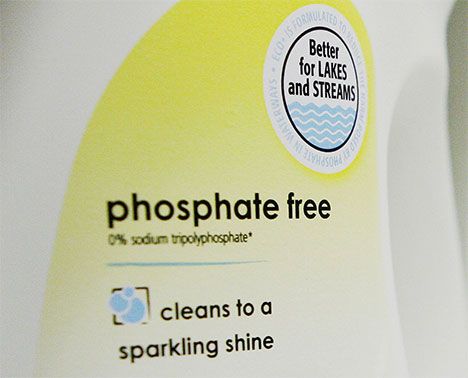Nutrient inputs are a big problem for both Illinois waterways and the Gulf of Mexico into which polluted water leaving Illinois ultimately drains.
NARP Stakeholder Engagement Best Practices
Factsheet on Illinois' Nutrient Problem
Factsheet on Nutrient Reduction Strategies for Homeowners
What are nutrients?
Phosphorus (P) and nitrogen (N) are naturally occurring nutrients critical to plant growth. In nature, they are typically found at very low levels in water bodies, and thus are a limiting factor in ecological processes. Nutrient pollution occurs when excess phosphorus and nitrogen are added to rivers, lakes, and streams, essentially over-fertilizing the water and promoting excessive algae and plant growth.
Why are excess nutrients in our waters a problem?
Extensive algal blooms and aquatic plant growth create unhealthy conditions which adversely impact aquatic life, drinking water and recreational uses. During the night, dissolved oxygen (DO) in the water can drop to critically low levels for fish and other aquatic life due to nighttime oxygen consumption by the excessive plant and algae material. Low DO can cause fish kills, and excess algae means water treatment plants have increased costs to address odor and taste problems in drinking water. In rare instances, blue-green algal blooms can produce algal toxins that pose a health risk to people and animals.
How do nutrients get into our waters?

The major sources of excess nutrients in our waterways are three-fold.
• Agricultural Runoff contributes a significant amount of nutrients to our waters via direct runoff from soils enriched with fertilizers and animal manure. Runoff from agriculture contributes 82% of the nitrogen and 48% of the phosphorus exported from Illinois.
• Sewage Discharges and Combined Sewer Overflows: Many sewage treatment plants do not remove nutrients from their treated effluent before it is discharged into waterways. Studies estimate that 48% of the phosphorus and 16% of the nitrogen exported in Illinois rivers comes from sewage effluent. In addition, some cities, like Chicago, store runoff in the same system as the city's sewage, known as a combined sewer. During storms, these sewer systems can become overwhelmed and overflow a mixture of stormwater and untreated sewage.
• Urban Surface Runoff picks up nutrients from private lawns and gardens, thus introducing more nutrients into our rivers, streams and lakes. Urban runoff contributes just 2% of the nitrogen and 4% of the phosphorus exported from the state, but in local streams in urban areas it can account for nearly all the nutrient contributions to these streams.
How Can You Help?
Sierra Club Water Sentinels throughout Illinois check the level of nutrients in local streams. Learn more on our Water Sentinels page.
How you manage your home and property can have a significant impact on the health of Illinois’ rivers, lakes and streams. There are some simple steps you can take both inside your home and outdoors to help reduce nutrient pollution.
Outdoors:
Before purchasing lawn fertilizer, check that the center number on the label is ‘0,’ indicating that the fertilizer is phosphorus-free.
-
In Illinois, soil phosphorus levels are typically sufficient to grow healthy turf grass.

Make sure any lawn care company you hire complies with Illinois law and uses no-phosphorus lawn fertilizer.
-
See this list of lawn care companies in Illinois that offer alternatives to traditional chemical lawn care.
Use native plants in your garden to reduce the need for fertilizer.
-
Native plants are naturally adapted to the Illinois climate and once established, can be grown without the need to fertilize or water.
Arrange native plants into rain gardens to increase soil porosity, improve the ground’s capacity to absorb rainwater, and reduce overall water runoff into sewers.
-
Learn more at http://prairierivers.org/raingardens/
Disconnect your downspouts and install rain barrels to catch water collected from the roof.
-
This water can then be used to water plants and gardens during non-rainy weather.
Inside Your Home:
Be sure to double check that your liquid dish soap, laundry detergent, and dishwasher detergents are all phosphate free.
Reduce your indoor water use, as excessive private water usage can prevent sewage treatment plants from operating most efficiently.
-
Purchase low flow shower heads
-
Use shower timers
-
Turn off faucets when brushing teeth
-
Check your indoor pipes for leaks
-
If you live in Chicago, install a water meter in your home
Images from:
- U.S. Geological Survey
- Lakesuperiorstreams.org
- Oregonlive.com
Announcement: Nutrient Assessment Reduction Plans (NARPs) for 30 Municipal Facilities
We are pleased to announce that the Illinois EPA has published 30 Nutrient Assessment Reduction Plans (NARPs) related to the National Pollutant Discharge Elimination System (NPDES) program. Facilities have submitted plans due to their discharge to receiving water bodies that have been assessed to be impaired or at risk of eutrophication by the Illinois EPA. Eutrophication is the process that occurs when a body of water receives excess nutrients which in turn can create unhealthy conditions impairing the water for humans and aquatic life.
The purpose of the NARP is to identify phosphorus input reductions and other measures that can be implemented by these major wastewater facilities. A phosphorus-related impairment means that a downstream waterbody is listed as impaired due to elevated phosphorus levels causing low dissolved oxygen and offensive conditions. The public is encouraged to review respective plans within their watersheds of interest. Sierra Club IL Chapter Clean Water Team has been following the NARP process and will be submitting responses to IEPA and creating opportunities for stakeholder engagement to help improve water quality in our state and protect our precious aquatic resources. If you are interested and would like to be invited or involved in NARP feedback and review please contact Mila Marshall at mila.marshall@sierraclub.org.
Documents can be viewed at the following link: https://epa.illinois.gov/topics/water-quality/watershed-management/narps.html